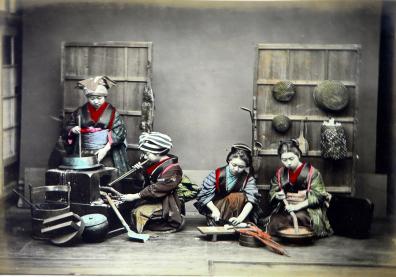ICHD - History and traditions

The "Intangible Cultural Heritage" (ICH) defined by UNESCO in October 2003 recorded eating habits and culinary practices for the first time in 2010. France was the first to register its "gastronomic meal", followed by other countries such as Japan, Greece, Italy, Kenya, Senegal and, more recently, Peru and Lebanon. To date, 18 countries and 5 regions have had their culinary and food heritage registered with UNESCO.
Cooking and eating are practices that are constantly evolving in human societies. Human exchanges, the circulation of knowledge, material exchanges and the introduction of new foodstuffs lead to the establishment of new practices that spread across the cultural and social landscape. Culinary and food practices are thus good indicators of changes in mores, social and cultural representations, human links at different levels, and the cultural construction of tastes and identities. Recipes, advertisements, literature, the press and iconographic representations form the basis of a significant body of documentation in different cultural areas, enabling historians to question social processes linked to food and cooking.
During this round table our speakers will revisit the notion of "tradition" in order to challenge it from a historical perspective through different examples of culinary and food evolutions.
Moderator: Noémi Godefroy, lecturer in the Japan department at Inalco
Interventions:
- Patrick Rambourg, historian of culinary and food practices in France, associate member of the ICT (Identities, Cultures, Territories) laboratory at Université Paris Cité
- Emmanuelle Cronier, lecturer in contemporary history at the Université de Picardie-Jules Verne and researcher at the Centre d'Histoire des Sociétés, des Sciences et des Conflits
- Alexis Markovitch, PhD student in Japanese history at Inalco
.